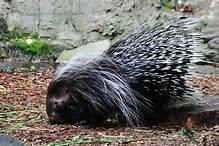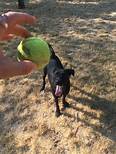Can Porcupines be Pets?
Porcupines are fascinating creatures with their distinctive quills and unique behaviors. They are often associated with danger due to their defensive mechanism, but some people wonder if they can be kept as pets. In this article, we will explore whether porcupines make suitable pets and delve into the considerations and challenges associated with keeping them in captivity.

Habitat and Diet
Porcupines are native to North and South America and are found in various habitats, including forests, grasslands, and rocky areas. They are herbivores and primarily feed on plant material, including bark, leaves, fruits, and roots. In captivity, providing a diverse and balanced diet is essential, along with constant access to water.
Behavioral Traits
Porcupines are generally solitary animals that spend much of their time foraging for food. They have a nocturnal lifestyle, meaning they are most active at night. When threatened, porcupines erect their quills and emit a warning sound. In captivity, creating an environment that caters to their natural behaviors and provides opportunities for foraging is crucial.
Legal and Ethical Considerations
The legality of keeping porcupines as pets varies by country and state. In some jurisdictions, it is illegal to keep them without proper permits or licenses. Moreover, there are ethical concerns associated with keeping wild animals as pets. Porcupines are not domesticated animals and may struggle to adapt to a captive environment, leading to potential health and welfare issues.
Potential Hazards
Keeping porcupines as pets comes with inherent hazards. Their quills can inflict painful injuries if they feel threatened or disturbed. Even if porcupines are properly handled, the quills can easily detach and embed in the skin, causing irritation and infection. Additionally, porcupines can carry diseases that are transmissible to humans, emphasizing the importance of proper hygiene practices.
Alternative Options
If you are interested in having a porcupine-like pet, there are alternative options that may be more suitable. Some rodents, such as degus and chinchillas, share similar physical characteristics and have been successfully kept as pets. Additionally, educational institutions, wildlife sanctuaries, and zoos may offer opportunities to interact with porcupines in a controlled environment.
Conclusion
Porcupines are fascinating animals that play an important role in their natural ecosystems. However, they are not ideal pets due to various factors, including legal restrictions, ethical concerns, potential hazards, and the challenges associated with meeting their complex needs. If you are interested in learning more about porcupines or observing them in their natural habitat, consider visiting a wildlife park or sanctuary.
Declaration: All article resources on this website, unless otherwise specified or labeled, are collected from online resources. If the content on this website infringes on the legitimate rights and interests of the original author, you can contact this website to delete it.




